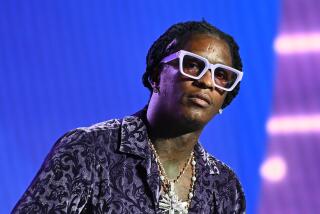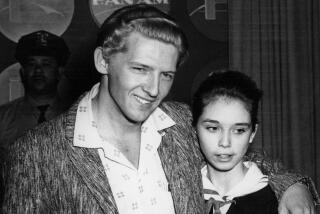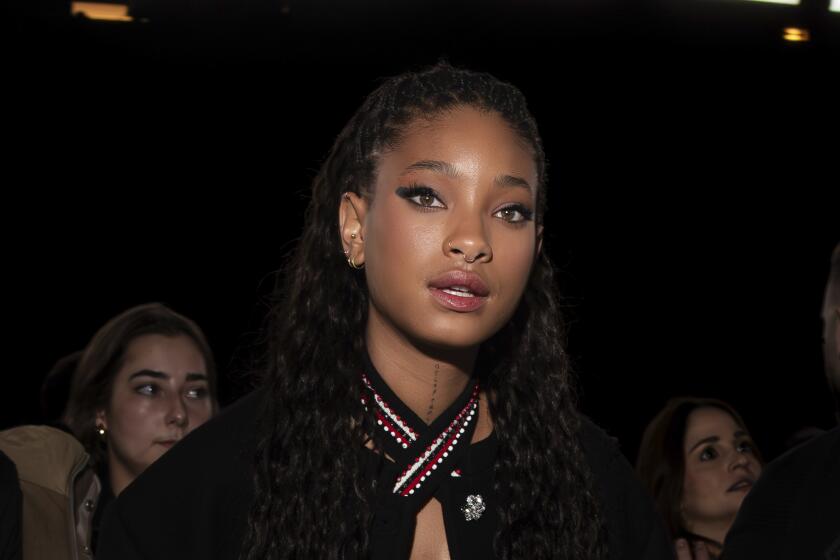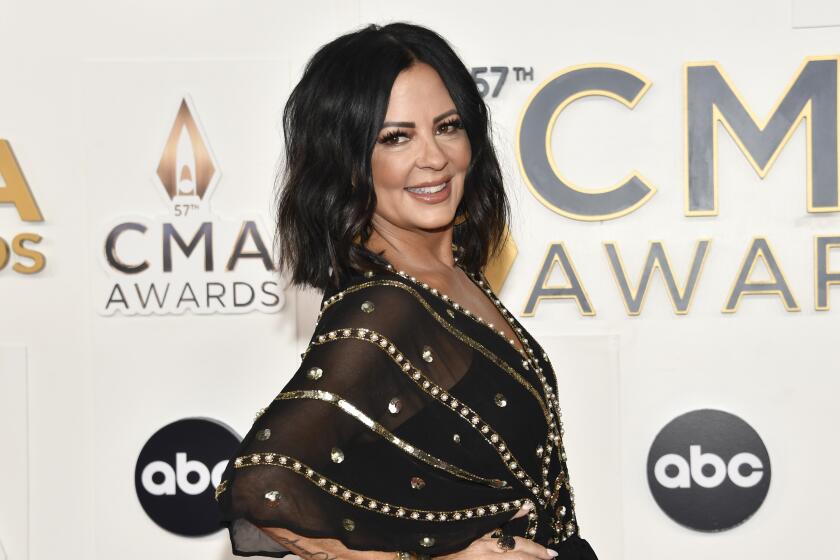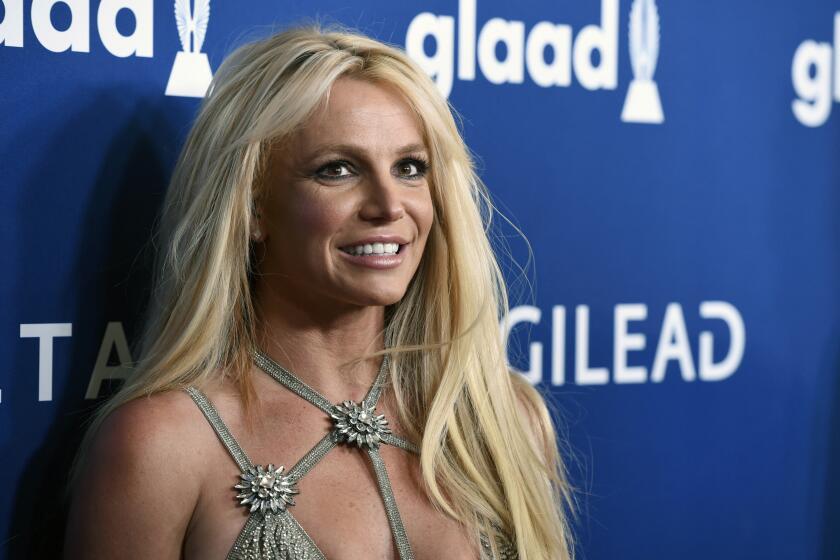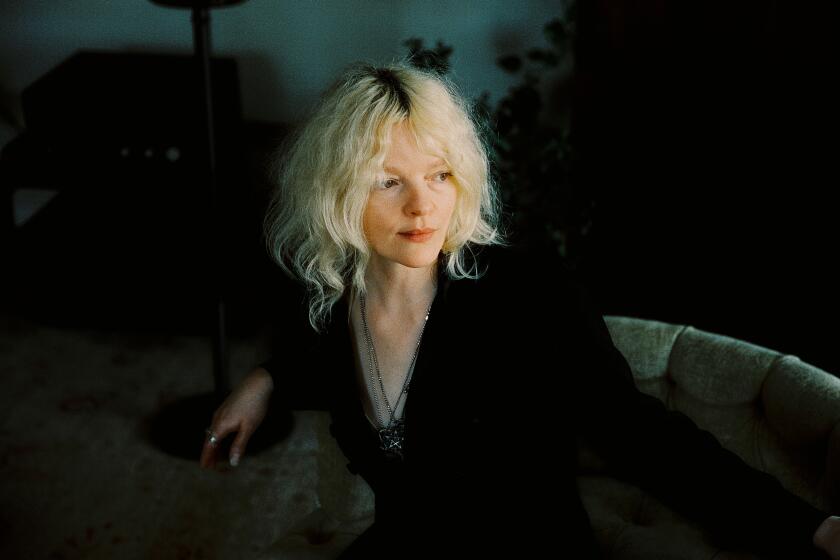POP MUSIC REVIEW : Kershaw Fiddles, His Act Sizzles
Sometimes it doesn’t take much to revivify an artist’s verve for performing. Take Doug Kershaw, for example. For the past few years his shows often seemed as tired and pat as one might expect after ages of one-nighters with no prospect of a resurgent record career.
But, claiming he has a single at No. 39 on the country chart, Kershaw seemed to be a whole new bottle of hot sauce Monday night at the Crazy Horse Steak House. The Ragin’ Cajun’s wild bayou whoops and demonic fiddling haven’t sounded so alive in years, which just shows how much a little encouragement can do.
And it may indeed be quite a little encouragement: While Kershaw said his and Fats Domino’s version of “My Toot Toot” was No. 39 with a bullet and that another of his songs is No. 66, neither appear at all on the current Billboard chart. A call to Billboard’s Nashville office showed that Kershaw also doesn’t appear in the chart of their upcoming issue, and certainly hasn’t been on it in years. Oh, well--maybe he’s on a chart somewhere, and one hopes it isn’t merely in his mind. His performance Monday certainly was deserving of some recognition.
He did a typically short set--one hour, with one-fifth of that time devoted to his band’s opening tunes--and his 10 songs were chiefly the ones he’s been doing for years, but he attacked them with a renewed passion. At his worst, the gangly fiddler is still an entertaining curiosity; at his best, which he possibly approached Monday, he is a dazzling showman capable of connecting emotionally.
He opened with his old hit “Diggy Liggy Lo” (a regional hit for him in the early ‘60s and a national hit in 1969), which he leaped into with the stage-burning energy performers often save for their closing tune. Though he played his fiddle in every position except the traditional under-the-chin mode, his wild sawing still was remarkably clean, landing on pitch and propelling the tune with a buzz-saw rhythm. In its own manic way, the playing was even lyrical, with the touch of melancholy that seems to infect even the happiest Cajun tunes.
In the ‘60s, Kershaw was about the only Cajun most Americans had even heard of, and many thought he was just a singular oddity. Since then America has learned there are plenty more in Louisiana, and a great many of their performers are more representative of their culture than is Kershaw’s wacky display. The Tiel Ridge, La., native may approach his musical heritage with more “diggity” than dignity, but it does make for a lively show.
His dry cleaner must be pretty experienced at cleaning rosin dust off his suits, for the powder was flying from his bow every which way. Anyone wishing to replicate Kershaw’s sartorial display would need to take a time machine back a generation and get a black cowboy shirt with white fringe and horse-head patches. For those desiring to dance like he does, try pouring Tabasco in your shorts.
He kept his opening pace up through the following “Mama’s Got the Know-how” and Rodney Crowell’s “Louisiana Saturday Night.” The latter tune was rearranged, with a dramatic dynamic opening that slowly built to a boil as Kershaw barely mumbled into the microphone before exploding into the tune proper.
He put the fiddle down and just sang on “The Boogie Queen” and played acoustic guitar on the traditional tune “Colinda,” which he sang in both French and English. He remained on guitar to sing his Caribbean-tinged “I Feel Just Like You,” a touching reflection on the simple joys of sobriety, which he said he has achieved for the last eight years.
Other set numbers included Hank Williams’ “Jambalaya” and “Cajun Baby,” a song Kershaw does as a duet with Hank Williams Jr. on Kershaw’s most recent album, 1989’s “Hot Diggity Doug.”
Practically the only dull spot in the show, oddly enough, was his purported hit, “My Toot Toot,” which is such a dim and worn-out novelty song that even paramedics couldn’t revive it. Fortunately he followed it with an encore of “Louisiana Man,” done as a stately reel that did draw well from his heritage.
Kershaw was ably backed by his quartet, the Louisiana Men, composed of guitarist Johnny Vee, keyboardist Dave Phelon, drummer Chris Jespersen and bassist Jimbo Bryam.
More to Read
The biggest entertainment stories
Get our big stories about Hollywood, film, television, music, arts, culture and more right in your inbox as soon as they publish.
You may occasionally receive promotional content from the Los Angeles Times.

